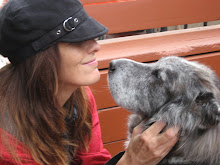


Meeting of the Teachers
Kileva Primary School, about 50 students, Class 1-4
We are met at the small school by Margaret, the headmistress. Parents working out front chopping and clearing tall grass away from the buildings—it’s




a snake haven here and this will provide a safer environment for the kids. We discuss how we can help—and we decide to come back on Friday. It is the first day of school here in Kenya—the start of the year when kids move up to the next class. They spend this first week transitioning, waiting for teachers and supplies, food for lunch, waiting even for students to show. We gather together class 3 and 4, both of which speak some English. We put them in a big circle and try to teach them the “Ndovu, Ndovu, Simba” game. Eventually, they get the hang of it, and we play for a while—laughing and chasing each other around the room—that is until we spot 2 or 3 wasps nests hanging above in the rafters. The schools here in Sigala Hills have no electricity or plumbing, but Kileva has had a few rain



containers donated for water collection. But they are in desperate need of the basics: teachers, supplies, food for the students. I find myself wishing on star and star after star. Time to leave, we say tuna ona baaday, see you later, and leave to a hundred waving hands, fifty smiling faces.
At Mwambiti Primary, we are welcomed by 240 wanafunzi (students) clad in bright orange uniforms waiting outside and in classroom as

their teachers hold a staff meeting. (students spend a lot of time waiting here.) They quickly gather round us, and we take photos of the joyous crowd. I ask them to teach me to count to ten in Swahili—moja, mbili, tatu, nne, tano, sita, saba, nane, tisa, kumi—I can’t remember them all, and all 240 students erupt in laughter. It makes me happy. We crash the teacher’s meeting—and they are very reserved at first. They introduce themselves and their years teaching—30 for the senior teacher! When they find out we are there to help in any way possible, the mood lightens (despite the huge wasp buzzing around Grayson's head.) The English teacher is excited for me to talk about writing. We promise to return Thursday, and say goodbye to the smiling faces once again.
Kajire Primary is by far the biggest at 500 students, Class 1-8 (which includes kids up to 17 if they don't pass exams in class 8.) We are greeted by many staff and community members, all welcoming us with a handshake (a special shake from the younger men.) We talk to headmaster, Michael, and he is overjoyed to have us support his school. There will be a celebration for us on Wednesday and then we will spend the day there. Possibilities bubble up inside me.
For the rest of that day, we spend time organizing more books, pumping up balls, and making lesson plans for the rest of the week. We work on the two laptops (one for Patrick, one for Kijere School--thank you Sheila, Kim, Lien and Mark for your amazing donations!) It is a time of anticipation and exhaustion, and the heat doesn’t help. But that night, we get it all done and begin the countdown of two days. What a gift to be here.






















































